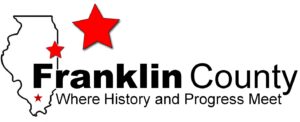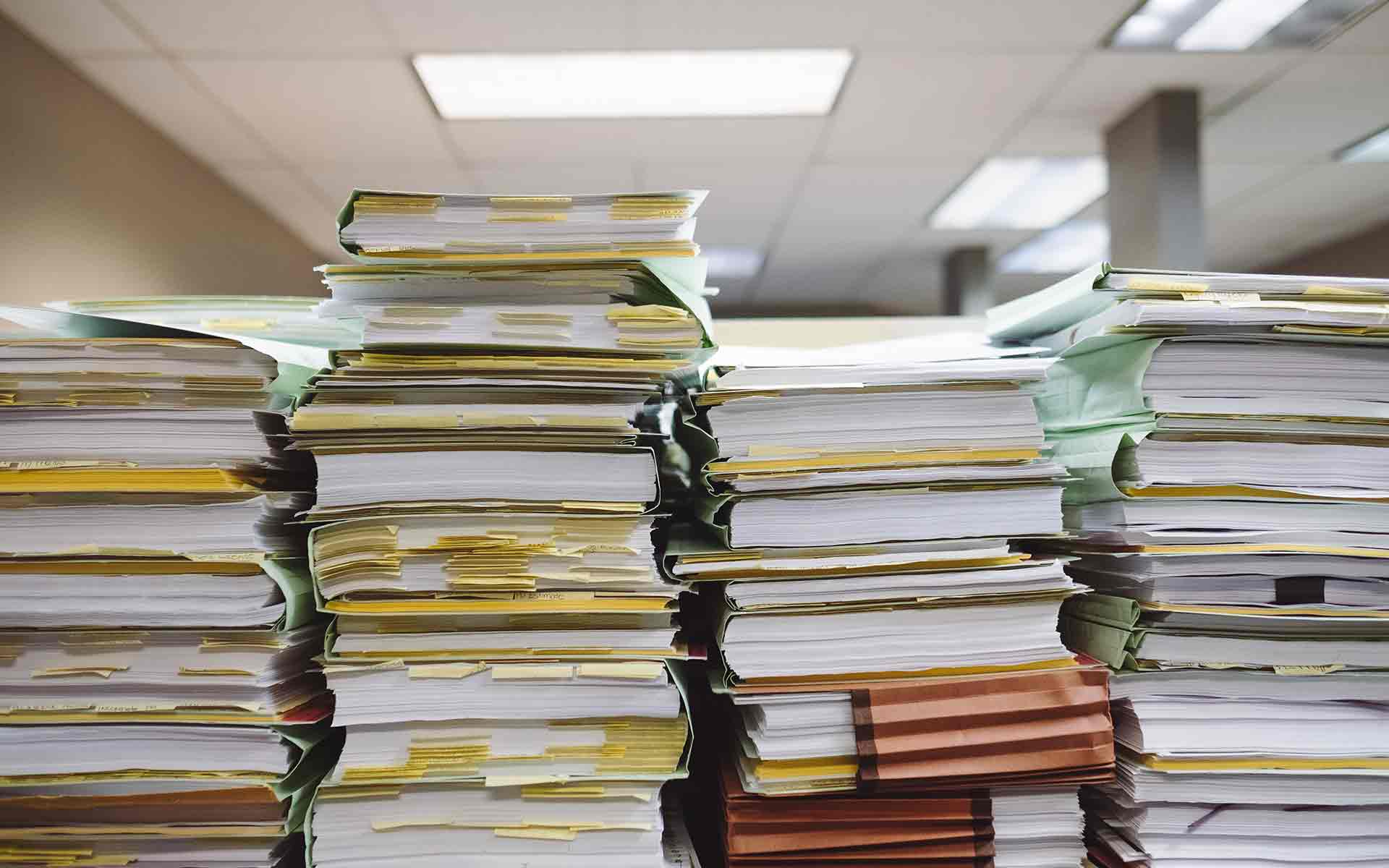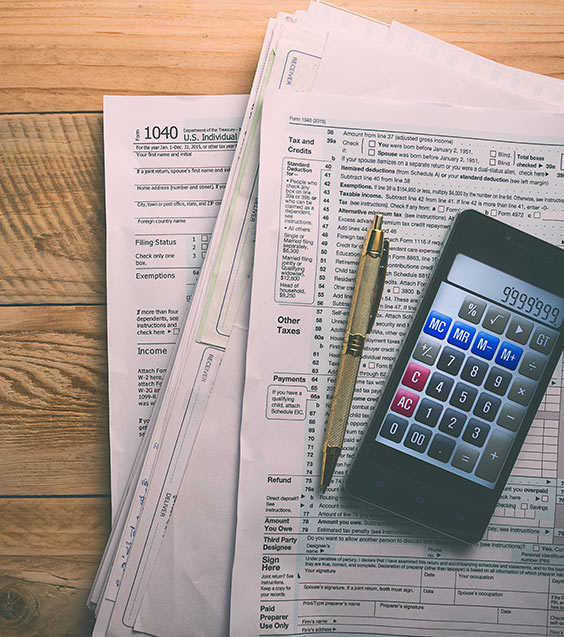
Paris Dunk – Franklin County Clerk & Recorder
Address
Franklin County Campbell Building
901 Public Square
Benton, IL 62812
Mailing Address
Franklin County Clerk
Post Office Box 607
Benton, IL 62812
Telephone: (618) 435-9800
Fax: (618) 435-3405
Email: [email protected]
Delinquent Tax Redemption
If the taxes on a parcel of land, mineral rights or mobile homes are not paid, they become delinquent. The County Treasurer conducts a sale of the unpaid taxes every year for the property in delinquency. Professional tax buyers and private citizens bid on the right to buy the delinquent taxes on individual parcels of property. Winning bidders then pay the outstanding tax. Once the tax sale is complete, the County Clerk is responsible for receiving payment of delinquent taxes.
Interest and penalties can add quickly to the amount the property owner owes. Original interest can range from nothing to a high of 18 percent per 6 months or thereof. Other fees, court costs, certified mailing costs and other costs add to the total due. Interest penalties are added every six months after the original tax sale, so it is wise to redeem delinquent property not only to preserve property rights but also to prevent additional costs.
It is important to note that property owners do not immediately lose their ownership of the property. For property owners residing on the property, the owners have two and a half years during which to redeem their property and protect their interest. After that time, tax buyers may grant an extension to the property owner or petition the Circuit Court for a tax deed transferring ownership.
Online Records Access
You can now access marriage and death records online!
Franklin County Clerk’s Online Records Selection
Redeeming Delinquent Property Taxes
To redeem delinquent property, contact the County Clerk’s office. Provide a parcel number for the property you are inquiring about. Since penalties can be added at any time, it is wise to obtain an estimate of the total costs due at the time to wish to pay. Payment must be in full and can only be paid in cash, money order or bank cashier’s check. According to Illinois law, personal checks or credit cards cannot be accepted.
Recording Documents
Instruments filed with the Recorder’s office include deeds, mortgages, releases and assignments, property liens, as well as assorted federal, state and local liens. Other documents included are veteran’s discharge papers, corporation papers, and instruments pertaining to the Uniform Commercial Code. The Recorder’s office is also responsible for the recordation and storage of subdivision plats, land surveys and monument records. Our records are indexed and available to view by both bound record books, microfilm and digital images are on the computers in the County Clerk’s office or online by using the Tapestry website: www.landrecords.com. Also, the Franklin County Clerk & Recorder’s office offers an agreement using Laredo. Complete the Laredo Agreement (Connect) and email to [email protected].
Digital images are available from January 1, 1990 thru present.

How to Record a Deed
Document recording is accepted in person or via US Mail or courier. Only original documents bearing actual signatures may be recorded. Faxed documents can not be accepted.
While we are happy to answer your questions about how to record documents, the office can not give legal advice about transferring property. You are urged to contact an attorney, abstract or title company to transfer real property.
All land transfers must adhere to Franklin County‘s Subdivision Ordinance and the Illinois Plat Act. All property transfers outside of city and subdivision lots must be approved by the Supervisor of Assessments to assure compliance.
Original documents will be returned to the customer with document numbering information on the following business day. All recording is time-dated and placed on record in the order it is received. Most documents are recorded the day they are received.
A Real Estate Transfer Declaration (PTAX-203), commonly called the “green sheet,” reports the amount of real estate transfer tax due, and must accompany deeds for recording unless the document includes an exemption paragraph or exemption stamps.
Statutory Content of Recorded Documents
- Legal Description of Property – Legal description and parcel number must be included in all documents. Also include street address.
- Signatures – Original signatures are required.
- Addresses – Include grantee address for tax billing on deeds.
- Notarization / Acknowledgement
- Preparer – Must include name and address.
- Document Numbering – Doc number provided by Recorder.
Common Reasons for Rejection of Recording
- Real Estate Transfer Declaration or exemption stamp missing from deed.
- Fees incorrect.
- Legal description missing or wrong.
- Parcel number is missing or wrong.
- “Prepared by” statement missing.
- Notary signature or seal missing.
- Document not dated or signed.
- Subsequent document missing reference to original document.
- Does not adhere to County Subdivision Ordinance / Plat Act.
Land Records Access At This Time
The Franklin County Recorder’s office does not offer remote access.
Franklin County Recorder’s office has made available data and document images from 1990 to present. Indexing information is available from 1990 to present. You are welcome to make use of our free public terminals to search this information in the Recorder’s office. Not available on line.
Recording Fees
- Basic Recording Fee is $84 for real estate-related documents for a standard document.
- Basic Recording Fee includes County recording fee of $33.91, GIS fee of $22.69, Automation fee of $6.54, Rental Housing Support tax of $9, Document Storage Fee of $2.86..
- Instruments incurring the $9 Rental Housing Support tax include: Deeds, Warranty Deeds, Quit Claim Deeds, Agreements, Options to Purchase, Contracts for Deed, Mortgages, Releases of Mortgage, Leases, Lis Pendens, Mineral Deeds, Coal Leases, Oil & Gas Leases, Surveys, Monument Records, Liens, Foreclosures.
- Non-real estate related documents include Articles of Incorporation, Birth, Death & Marriage Records, Judgments, Notices of Probate, Powers of Attorney, Utility Easements, UCCs.
Real Estate Transfer Tax
- Real Estate Transfer Taxes are imposed by the State and County for many property transactions, as well as certain trusts and long-term leases. Consult the Illinois Department of Revenue for additional information.
- State and County Real Estate Transfer Taxes are declared on the PTAX-203 series forms and paid along with recording fees.
- State Real Estate Transfer Tax: $0.50 per $500 of consideration
- County Real Estate Transfer Tax: $0.25 per $500 of consideration
Copy Charges
- Copies per document – $1 per page.
- Faxed copies per document $2
- Certified copies per document $1 per page
- Please provide document numbers for copy requests. Payments are accepted by mail or in person. The County Clerk’s Office is not responsible for Title searches.
Miscellaneous Charges & Fees
- Additional charge for legal-size paper: $2Plat of Survey/Subdivision: $100
- Plats of Subdivisions (maximum 30” x 36”) submit an original and three exact, true and legible copy.
- Each additional page $1
- GIS fee for review $25

Property Tax Information
The County Clerk’s office plays an important role in the county’s property tax process by receiving tax levies from each taxing district and assessment information from the Supervisor of Assessments. We use the information to extend taxes to each property annually.
Local taxing districts (municipalities, road districts, schools, etc.) file a levy request annually with the County Clerk seeking property tax funds from their district’s taxpayers for general and special purposes. The County Clerk ensures all levy requests are filed in compliance with the Illinois Truth-In-Taxation law with statutory tax rate limits and applies the property tax extension limitation law (PTELL or tax caps).
The County Clerk records all outstanding bonds from all of its taxing districts. Bond payment amounts are added to each district’s annual levy as required by the original payment schedule.
After property assessments are completed by the Supervisor of Assessments and the Board of Review, the County Clerk extends taxes to each parcel of property in the County, a process which determines the individual tax bill. Taxes depend on the assessed value of the property, as well as the dollar amount requested by each taxing body in that property’s taxing code. Once the Clerk completes tax extensions, the County Treasurer mails bills and collects tax payments.
In addition, the County Clerk’s office retains records which show the boundaries of each taxing district. The Clerk also files annexations and boundary changes in all taxing districts. These changes are reported to the Illinois Department of Revenue. Records relating to Tax-Increment Financing (TIF) districts and Enterprise Zone abatements, special processes designed to create or retain development, are also maintained.
Where Your Taxes Go
understanding your tax bill
Once tax rates for all taxing bodies in a county have been set, the County Clerk must add up the rates which apply to particular areas in the county. Different parts of the county are under jurisdiction of different combinations of taxing districts. The County Clerk divides the county into tax code areas, in which all property is subject to the jurisdiction of the same combination of taxing units and thus has the same combination of tax rates. Aggregate rates are computed for each code area. A tax bill is calculated by multiplying the equalized assessed value of a property (less any exemptions) by the aggregate rate for the tax code area in which the property lies.
The aggregate rate seen on a bill will be a combination of a county rate, a township rate, a school district, a city rate (if a taxpayer lives within the boundaries of an incorporated municipality), and rates for any special districts, such as fire, hospital, etc., which service the area. In Illinois, the rate is generally expressed in terms of dollars per hundred dollars of equalized assessed valuation (the same as a percent).
As an example, an aggregate rate of 9.5575 might include:
County
1.0541
Bi-County
0.0888
Rend Lake Conservancy District
0.0739
City
1.3536
Grade School District
2.4997
High School District
2.2609
Jr. College
0.6205
Township District
0.3390
Township Road District
0.4139
Park District
0.2985
Library District
0.3213
Hospital District
0.2333
Total
9.5575
A taxpayer whose home had an equalized assessed value of $20,000 (after the exemptions were deducted) would have had, based on this rate, a tax bill of $1,911.
Definitions of Terms Used on Property Tax Bills
Fair Cash Value – The amount for which a property can be sold in the due course of business and trade, not under duress, between a willing buyer and a willing seller.
Assessed Value – The value placed on property for tax purposes and the basis for determining what portion of the overall tax burden each property owner will bear. Equalization Factor or Multiplier – The equalization factor (sometimes called a multiplier) is the tool used to bring all property to a uniform level of assessment.
Equalized Assessed Value (EAV) – The equalized assessed value, or EAV, is the result of applying the state equalization factor to the assessed value of a parcel of property. Tax bills are calculated by multiplying the EAV (after any deductions for exemptions) by the tax rate.
Exemption – The removal of property from the tax base. An exemption may only be a portion of the equalized assessed value, such as a homestead exemption, or for the complete amount of the equalized assessed value, such as a church building used exclusively for religious purposes.
Tax Rate – The amount of tax due, stated in terms of a percentage of the tax base. (Example: $6.81 per $100 of equalized assessed valuation (equal to 6.81%). You can obtain this percentage by dividing the levy for a fund by the equalized assessed value for the taxing district. Some funds have a maximum statutory tax rate that may not be exceeded. The sum of the fund rates equals the total district rate.
Taxing District – Any unit of local government, school district or community college district with the power to levy property taxes.
Tax Code – A number used by the county clerk that refers to a specific combination of taxing bodies.

Property Tax FAQs
Below are many of the most frequently-asked questions about property taxes
Your taxes may be high (or higher than they were last year) for any or all of three general reasons.
- Increase in your tax rates due to lower assessments, or a referendum.
- Your assessment has increased from the prior year.
- You are not receiving exemptions your are entitled to.
Your taxes will be sold at the annual tax sale. When your taxes are sold, you will retain the right to redeem your property for two to three years, depending on the type of property. To redeem the taxes, you will have to pay costs and interest in addition to any tax due. Contact the County Clerk’s office for an estimate of the costs.
Call the Franklin County Clerk at (618) 438-3221 and ask for an estimate of redemption. Give them your parcel number.
For other questions about:
- Property valuation, exemptions and Board of Review appeals – Call the Franklin County Supervisor of Assessments Office at (618) 438-4331.
- Tax rates or tax redemption – Call the Franklin County Clerk at (618) 438-3221.
- Tax bills – Call the Franklin County Treasurer’s Office at (618) 438-7311.
Contact the Treasurer’s Office at (618) 438-7311.
Contact the Treasurer’s Office at (618) 438-7311 with questions about the current tax collection cycle.
Taxpayers receive a notice before the annual tax sale begins. The letter is sent by the Franklin County Treasurer’s Office to inform taxpayers that balances still due will be offered for sale. Once taxes are sold, a notice prepared by the tax buyer, called a “Take Notice,” is mailed by the County Clerk’s office. This notice is prepared by the delinquent tax purchaser and mailed within the first four and one-half months after the date of sale. The notice before the sale and the Take Notice are sent by certified mail to the last taxpayer of record.
Also, a notice on your current tax bill may provide an indication that your taxes have been sold, or that you have other taxes that are due and that may have been sold or may be available for sale at any time. If you know or suspect that you have delinquent taxes or that your taxes have been sold, please call the County Clerk’s office at (618) 438-3221 to verify the status.
If your taxes have been sold, you should immediately obtain an Estimate of Redemption. This is a calculation of the amount you need to pay to redeem the sale and remove the threat of loss of the property. Once you obtain the estimate, verify that it is for the correct property. You are advised to redeem the taxes immediately, as penalties and fees can increase and can multiply over time. These taxes and any fees and penalties must be paid in full; there are no payment plans applicable to redemption payments.
What should I do if I believe my taxes have been sold in error, or if I have paid my taxes and they have not been credited to my property?
You should immediately contact the Treasurer’s Office with any documentation you have to support your claim. You should always keep a copy of the check or money order you used to pay your taxes, as well as any receipts received that will allow you to prove that you paid the full amount on time. This will help with any dispute you have over your property tax payments.
It is the annual amount of money a taxing body certifies to the County Clerk to be raised by property taxation.
A taxing district cannot raise their tax levy more than 5% of the amount of money they receive in taxes from the previous year. If the district must raise their levy more than 5%, they are required to comply with the Truth-in-Taxation Law.
Truth-in-Taxation requires a public hearing to discuss the tax levy if there is an increase of more than 5%. The public notice of the hearing must be published in the general section of a newspaper in the form of a 1/8th page ad with a heavy black border. The hearing is informational only; no vote or approval from the public is required. However, the taxing district must present its reasons for increasing the levy and allow the public an opportunity to be heard.
Tax Increment Financing (TIF) Districts are economic tools used by municipalities to fund development projects.
The total from your tax bill is the same if you are in or out of a TIF district. If your property is in a TIF district, you will notice that the TIF tax amount will usually increase each year. This is because your property usually increases in assessment. The difference between your bill and a bill that is not in a TIF is that part of your taxes will be distributed to a TIF district instead of to the county, schools, libraries, etc.

Notary Public Commissions
The County Clerk’s office presents all Notaries Public with their commissions and certificates. These commissions are issued by the Illinois Secretary of State. The purpose of notarization is to prevent fraud and forgery. The notary acts as an official and unbiased witness to the identity of person who comes before the notary for a specific purpose. If you need to have documents notarized, bring an approved photo ID when you appear before the notary.
Notary Public Requirements
Notaries are appointed by the Illinois Secretary of State for a term of four years. An applicant for an appointment must:
- Be a citizen of the United States or an alien lawfully admitted for permanent residence.
- Be a resident of the State of Illinois for at least 30 days.
- Be at least 18 years of age.
- Be able to read and write the English language.
- Have not been convicted of a felony.
- Have not had a notary commission revoked during the past 10 years.
An applicant must complete the application form provided by the Secretary of State or the County Clerk and must obtain a notary bond valued at $5000 from a bonding or surety company.
Once approved the commission will be mailed to the County Clerk in which the applicant resides. There it must be recorded before the applicant is officially a notary.
For further information on becoming a notary download the Illinois Notary Public Handbook.
To become a notary, download the Illinois Notary Public Application and mail it to the Secretary of State’s office at the address provided. Remember to include bonding information and enclose the $10 fee. If you application is accepted, you will be notified by the County Clerk’s office.
Finding A Notary Public
There are over 100 Notary Publics in Franklin County. The County Clerk and staff offer notary services free of charge. Most banks, law offices, schools and other professional offices have a Notary Public on staff.

Registering a Business
Several steps are required of those starting their own business. Other information is also available to assist business owners.
Certificate of Assumed Name – Sole Proprietor or General Partnership Businesses
Illinois law requires that many businesses file a Certificate of assumed name in the County where the business operates. If you will have a sole proprietor or general partnership business then you should file at Franklin County Clerk’s Office.
Anyone transacting business in Franklin County who is not a corporation and is not using only his/her full name as the name of the business must file. Applicants complete a short notarized form listing the business name, its address and the name(s) of all owners. Clerk’s fee is $27. All Certificates of Assumed Name are on file and available for public inspection in the County Clerk’s office.
A publication certificate will be issued. This must be taken to a local newspaper and published once a week for three consecutive weeks. Business owners are responsible for the publication fees charged by the newspaper for legal ad publication. The transaction must be completed within 55 days of the original filing in the County Clerk’s office.
Once published, the newspaper will send verification of publication to the County Clerk’s office and a Certificate of Business Ownership will be mailed.
Articles of Incorporation
If you will have an incorporated, corporate or limited business then you should file for Articles of Incorporation with the Secretary of State’s office in Springfield. Once these Articles are issued, they should be recorded in the County Clerk’s office.
Additional Information
In addition to filing an Assumed Name Certificate, you are required to notify the Illinois Department of Revenue to obtain an Employer Identification number and report sales tax income. You must also notify the Illinois Department of Employment Security to report your employees and pay unemployment insurance.
There are many state, federal and private entities that regulate and assist business owners. These include groups that provide education, counseling, low-interest loans and a myriad of other programs.
Helpful Links
Illinois Assumed Business Name Act
Secretary of State’s Office — Business Services
Department of Revenue — Business Services
Schedule of Fees
Click on the PDF files below to access and download the current schedule of fees for the Franklin County Clerk’s Office.
Franklin County Recording Fees
Franklin County Fees
Ordinance Establishing Recording Fee Increases
Statements of Economic Interest
What is a Statement of Economic Interest?
Statements of Economic Interest are disclosure forms for public officials, candidates for public office and certain other public employees. Filers must list specific information about their business dealings, outside income and other information. Those required to file must file with the County Clerk annually, no later than May 1.
Who must file a Statement of Economic Interest?
Examples of those individuals in a unit of local government who must file a statement of economic interest are below (Illinois Governmental Ethics Act, 5 ILCS 420):
Persons who are elected to office in a unit of local government, and candidates for nomination or election to that office, including regional superintendents of school districts.
Persons appointed to the governing board of a unit of local government, or of a special district, and persons appointed to a zoning board, or zoning board of appeals, or to a regional, county, or municipal plan commission, or to a board of review of any county, and persons appointed to a board or commission of a unit of local government who have authority to authorize the expenditure of public funds. This subsection does not apply to members of boards or commissions who function in an advisory capacity.
Persons who are employed by a unit of local government and are compensated for services as employees and not as independent contractors and who:
- Are, or function as, the head of a department, division, bureau, authority or other administrative unit within the unit of local government, or who exercise similar authority within the unit of local government.
- Have direct supervisory authority over, or direct responsibility for the formulation, negotiation, issuance or execution of contracts entered into by the unit of local government in the amount of $1,000 or greater.
- Have authority to approve licenses and permits by the unit of local government; this item does not include employees who function in a ministerial capacity; adjudicate, arbitrate, or decide any judicial or administrative proceeding, or review the adjudication, arbitration or decision of any judicial or administrative proceeding within the authority of the unit of local government.
- Have authority to issue or promulgate rules and regulations within areas under the authority of the unit of local government.
- Have supervisory responsibility for 20 or more employees of the unit of local government.
- Are employed by a school district in positions that require that person to hold an administrative or a chief school business official endorsement.
How do you view a Statement of Economic Interest?
Statements of Economic Interest are open to the public during normal business hours at the County Clerk’s office.
Obtaining a Birth Certificate
Birth certificates are filed in the County Clerk’s office for all individuals who were born in Franklin County. Certified copies are available to those entitled to request them. Requests for death certificates must be in writing, whether by mail or in person, or on-line.
You may obtain a certified birth record in the following ways:
- In person at the County Clerk’s office during regular business hours.
- By mail using the printable application below. A copy of your valid photo ID, proper payment and a self-addressed stamped envelope are required.
Birth Certificates are available only to:
- The person named on the certificate (age 18 or older), or his parent or legal representative.
- A department of the State or Federal government.
- Any person upon order of a court
Birth Certificates Fees
Search and one certified copy of any birth certificate — $25
Additional copies of the same birth certificate — $7
Obtaining a Death Certificate
Death certificates are filed in the County Clerk’s office for all individuals who have died in Franklin County. Certified copies are available to those entitled to request them. Requests for death certificates must be in writing, whether by mail or in person, or on-line.
You may obtain a certified death record in the following ways:
- In person at the County Clerk’s office during regular business hours.
- By mail using the printable application below. A copy of your valid photo ID, proper payment and a self-addressed stamped envelope are required.
Application for Death Certificate Copy (PDF)
Death Certificates are available only to:
- A person, or his duly authorized agent, having genealogical, personal or property right interest in the record.
- A department of the State or Federal government.
- Any person upon order of a court
Death Certificates Fees
Search and one certified copy of any death certificate — $27
Additional copies of the same death certificate — $13
Obtaining a Marriage License
Marriage licenses are issued by the County Clerk. Marriage license are by appointment only. The appointments can be made Monday-Friday at 9:00 a.m., 9:30 a.m, 10:00 a.m., and 10:30 a.m. The application fee is $50 cash or check. The County Clerk’s office does not except cards. Both parties must be present and bring valid photo identification and wear a mask. Both parties will be asked a number of questions in order to complete the marriage license application. This process takes approximately 15 minutes. No blood tests are required.
The marriage license becomes effective the day after it is issued, unless you obtain a court under and expires in 60 days. You must be married in the county where the license is issued, regardless of your county of residence.

Illinois law provides for marriages of men and women over the age of 18, so long as they are not related within cousins of the first degree. Minors under age 18 but over age 16 may be married with the consent of parents. Both parents must appear at the time the license is issued and sign an affidavit consenting to marriage.
Any ordained minister or religious leader may perform your marriage ceremony. Rules for the celebration of marriage in a religious ceremony vary from church to church. Many couples are married in a short civil ceremony by a Circuit Judge. Appointments should be scheduled in advance through the Judge’s office and a $10 fee applies. The officiant will complete the marriage license following the ceremony, and both parties and their witnesses must sign. The completed license must then be returned to the County Clerk by the officiant.
Certified copies of marriage licenses are available once they are returned and indexed in the County Clerk’s office. Certified copies are often needed to change the last name of the bride, obtain new identification, update insurance policies, etc.
Certified Copies are available for $21, and $9 each for additional copies of the same license. Copies of a certified marriage license may be obtained in person at the County Clerk’s office, upon written mailed request.
Call the County Clerk’s office at (618) 438-3221 if you have questions about obtaining a marriage license.

Military Discharge Papers (DD-214)
All discharged military veterans should record copies of their military discharge papers (DD-214 forms) from any branch of the Armed Forces. This should be done in the veteran’s home county as soon as possible following discharge from the military service. There is no cost for this service.
Certified copies can then be provided at no cost to veterans throughout their lifetime. Please contact the County Clerk’s office to obtain a certified copy of your DD-214 form.
Thanks to a recent change in Illinois law, DD-214 records are now considered a confidential vital record and can not be accessed by the public at large.
Genealogy Research and Copies
The County Clerk’s office assists many visitors and handles many mailed requests for genealogy, or family history research. State law restricts access to vital records. Only the County Clerk and staff may handle the records. Staff members will search the indexes and copy the appropriate records.
For genealogy access, birth records must be at least 70 years old. Marriage records must be 50 years old. Death records must be 20 years old.
Genealogy Copies
Copies of vital records used for genealogy purposes are $4 each. Genealogy copies are uncertified and copied on white paper. Genealogy copies must be marked “For Genealogy Purposes Only”. These copies can be used only for informational purposes and are not valid for legal purposes.
Mailed Requests
Mailed genealogy requests should be specific and include all known information for the individuals being researched and the type of record being sought (birth, death or marriage). Requestors should send $4 for each copy requested, plus a self-addressed stamped envelope. Due to the volume of requests and confidentiality of records, the County Clerk’s office can not answer e-mailed family history inquiries. The County Clerk’s staff will attempt to locate documents for specific written inquiries. Payment is required before documents are copied or mailed.
Vital Records FAQs
State law is very specific about who may obtain a birth certificate. Only you, your parent/guardian, or attorney can obtain your birth certificate. State and federal agencies may also request your certificate on your behalf for official purposes. While these rules may be inconvenient, they are done to protect your privacy and prevent identity theft and other fraudulent practices.
Many people attempt to use a birth certificate issued by the hospital as proof of identity. Unfortunately these hospital certificates, which usually contain footprints and decorative lettering, are meant for commemorative purposes only. An official certified copy bearing a raised seal and the County Clerk’s signature is required for most official purposes.
No. Official certified copies bear signature of the County Clerk and a raised certification seal. All certified original copies are printed on security paper which will show the word “Void” if photocopied.
You must obtain your birth certificate from the jurisdiction where you were born. We can assist by providing the appropriate contact information.
In the days when home births were common, some parents inadvertently overlooked registering the birth. Individuals can have a delayed birth certificate issued by the Illinois Department of Public Health by completing an application signed by the County Clerk and providing other documentation about their identity.
Typographical errors, illegible handwriting and other factors can lead to erroneous information on some birth certificates. If the inaccuracies are minor, there may be no need to correct them. If they are more serious, the individual can apply for a corrected certificate from the Illinois Department of Public Health. We can assist you in obtaining a corrected copy from the state. The County Clerk’s office can not change or correct any information on the records filed here.